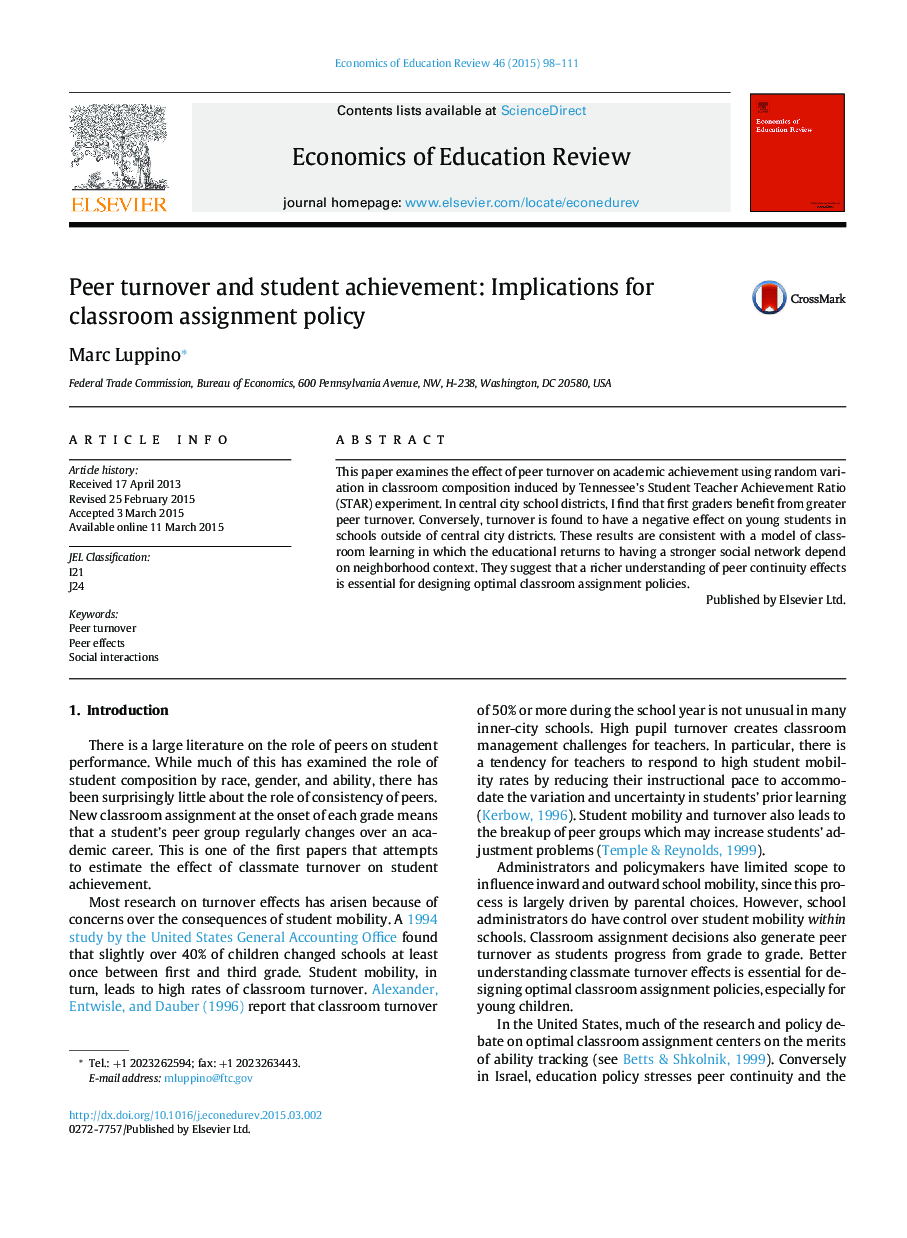| Article ID | Journal | Published Year | Pages | File Type |
|---|---|---|---|---|
| 6840872 | Economics of Education Review | 2015 | 14 Pages |
Abstract
This paper examines the effect of peer turnover on academic achievement using random variation in classroom composition induced by Tennessee's Student Teacher Achievement Ratio (STAR) experiment. In central city school districts, I find that first graders benefit from greater peer turnover. Conversely, turnover is found to have a negative effect on young students in schools outside of central city districts. These results are consistent with a model of classroom learning in which the educational returns to having a stronger social network depend on neighborhood context. They suggest that a richer understanding of peer continuity effects is essential for designing optimal classroom assignment policies.
Related Topics
Social Sciences and Humanities
Economics, Econometrics and Finance
Economics and Econometrics
Authors
Marc Luppino,
